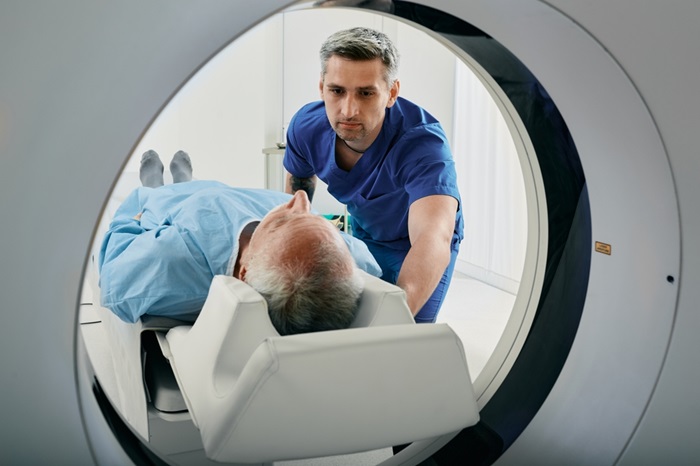Routine CT Screening Can Identify Individuals at Risk of Type 2 Diabetes
Posted on 07 Aug 2024
The growing prevalence of diabetes and its complications has created the need for exploring advanced diagnostic methods that can improve early detection and risk assessment. Now, a new study has demonstrated how CT scans, typically used for health screenings, can also be utilized to identify individuals at risk for type 2 diabetes. This concept, known as opportunistic imaging, leverages routine imaging data to gain insights into a patient’s overall health, enhancing the value of CT scans beyond their traditional use.
In this study conducted at Sungkyunkwan University School of Medicine (Seoul, South Korea), researchers assessed the predictive power of automated CT-derived markers for diabetes and its related conditions. The cohort consisted of 32,166 adults, aged 25 and older, who underwent health screenings that included 18F-fluorodeoxyglucose (18F-FDG) PET/CT scans. Advanced deep learning algorithms were employed to perform 3D segmentation and quantification of various anatomical features such as visceral fat, subcutaneous fat, muscle mass, liver density, and aortic calcium from the CT images. At the start of the study, 6% of participants were living with diabetes, and during a median follow-up period of 7.3 years, 9% developed the condition.

Findings from the study, published in the journal Radiology, revealed that CT scans can effectively identify individuals at elevated risk for diabetes and related health issues. Among the CT-derived markers, visceral fat measurement was particularly effective in predicting the likelihood of developing diabetes. When this marker was analyzed in conjunction with others—muscle area, liver fat fraction, and aortic calcification—the predictive accuracy further increased. The CT-based indicators also proved more effective than traditional risk factors in predicting conditions associated with diabetes, such as fatty liver identified by ultrasound, coronary artery calcium scores over 100, osteoporosis, and sarcopenia. These insights suggest that CT-derived markers could significantly refine the traditional approaches used in diabetes screening and risk stratification, offering a more comprehensive assessment tool in clinical settings.
“The results are encouraging as they demonstrate the potential of expanding the role of CT imaging from conventional disease diagnosis to opportunistic proactive screening. This automated CT analysis improves risk prediction and early intervention strategies for diabetes and related health issues,” said study senior author Seungho Ryu, M.D., Ph.D., from the Kangbuk Samsung Hospital at Sungkyunkwan University School of Medicine. “By integrating these advanced imaging techniques into opportunistic health screenings, clinicians can identify individuals at high risk for diabetes and its complications more accurately and earlier than the current approach. This could lead to more personalized and timely interventions, ultimately improving patient outcomes.”
Related Links:
Sungkyunkwan University School of Medicine














